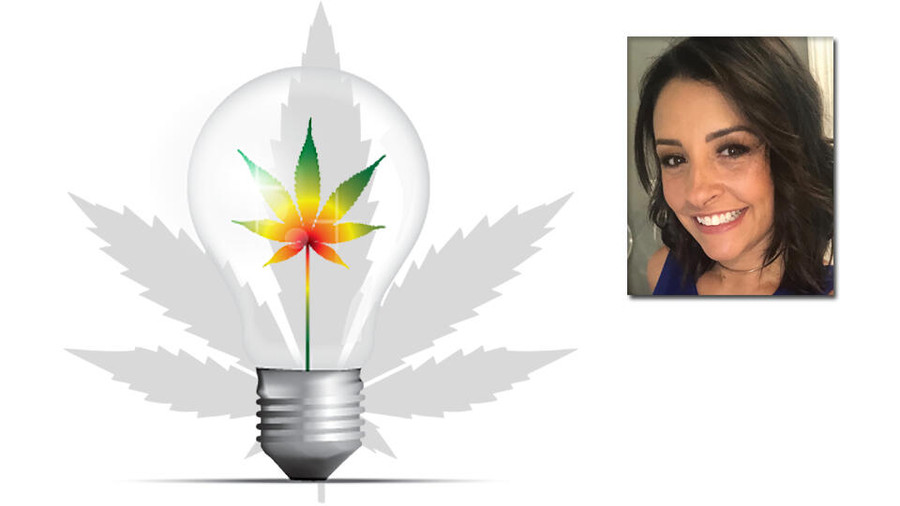In the last two years, CBD has taken the world by storm and caused quite a stir among consumers thanks to its reported health benefits and unique selling points. Consequently, there are now hundreds of CBD products available, many of which are specifically made for sexual pleasure enhancement. Retailers — and their shoppers — have so much to choose from within the CBD category, but there remain many relevant questions and valid concerns about CBD that have yet to be confidently answered. I’d like to take this opportunity to respond to some of these while also offering additional information that might be useful for stores looking to expand their cannabis-related offerings.
When CBD first burst onto the scene, there was very little question of its legitimacy — the purported effects and benefits were incredibly exciting, and the new brands and products coming out breathed fresh life into the “lotions and potions” category, which hadn’t seen much evolution in recent years. But as time passed and the market flooded with CBD-based lubricants, balms and enhancements, we found there was a lot we didn’t know or understand and, in turn, a lot left to learn about CBD — including what to look for in a product and what kind of questions to ask a manufacturer before bringing a CBD product to our retail partners.
You want to make sure you are working with reputable companies with quality products and avoid taking marketing materials and labels at face value.
The cannabis industry is largely unregulated, and every state has different legal parameters for cannabis-related products and ingredients, which means the onus falls on us — distributors and retailers — to learn as much as we can about a product and its source. For instance, where was the original plant grown? How was the CBD produced? From which part of the plant was it derived? Is there testing done and documentation to support each product’s CBD content?
Why is it important to ask these questions? Because, when it comes to hemp-derived CBD, the source is just as important as the product and the result it’s meant to provide. There can be life-changing benefits to the use of CBD products, but before you sell them, it’s important to understand what they are, what they really do, and how to sell them.
What Is CBD?
CBD stands for cannabidiol, which is one of the 113 identified cannabinoids in cannabis plants. CBD accounts for up to 40% of the plant’s extract.
Is CBD Legal?
As of 2018, hemp-derived CBD is federally legal as long as the THC content is less than 0.3%. To find out what your state’s regulations are and research what is acceptable in your area, visit www.hempsupporter.com. Hemp Supporter is a non-profit dedicated to providing hemp and CBD education to policy makers and consumers with the goal of making access safe and easy nationwide.
Can Hemp Get You High?
The short answer is no. For a longer answer we turn to Dr. Alex Capano, Chief Science Officer for Ananda Hemp: “People think hemp is marijuana, which carries a stigma, or that it doesn't have medicinal value. Hemp will not intoxicate you; it will not get you high, but with the right genetics, hemp can produce high-quality CBD oil.”
What Are the Benefits of CBD?
Dr. Capano says, “Hemp isn't just about cannabinoids or CBD. Hemp is rich in omega-3s and omega-6s, particularly linolenic acid, alpha-linolenic-acid, and gamma-linolenic-acid, which are great for cardiovascular health.” Additionally, scientific evidence has established that CBD can be a powerful anti-inflammatory agent, and scientific research suggests that CBD can help with conditions like anxiety, sleep and pain.
Lesser known is CBD’s potential to affect sexual and reproductive organs. According to Dr. Capano, women in particular have an abundance of endocannabinoid receptors in their reproductive tissues, and CBD can interact with these endocannabinoid receptors to influence pleasure and pain sensations, potentially heightening intimate experiences. In order to activate these powerful endocannabinoid receptors, products like Ananda Bliss’ Full-Spectrum Hemp Extract is highly concentrated with CBD and contains a legal “microdose” of THC — less than 0.3%.
How Can Retailers Get Started With CBD?
CBD is a hot commodity right now with hundreds of new CBD products available, and retailers need to be careful about what they stock and why. You want to make sure you are working with reputable companies with quality products and avoid taking marketing materials and labels at face value. Steer clear of companies making too many claims that sound too good to be true and do thorough research on each brand before you choose what to bring in. It’s ideal to select products that have QR codes on the labels that link to a certificate of analysis, which makes it easier to verify that what is listed on the label is actually what is in the bottle.
It can feel overwhelming to get started on your search for the right products for your stores, but you’re not alone. In addition to providing certificates of analysis, many quality CBD companies will offer samples so you can experience the product for yourself. Ask your sales representative about acquiring these samples and give them out to your in-store staff to try, too. If you are buying from a distributor, make sure to ask questions, book trainings, and ask for FAQ sheets so you can properly train your team on the products and how to sell them.
CBD can be an exciting and beneficial addition to your offerings and by staying aware of the manufacturers you work with and the validity of their claims, you can bring your consumers the kinds of high-quality products that can truly provide the health and wellness benefits they hear so much about.
Lynda Mort is the vice president of East Coast News. With 25 years of experience in the adult market, ECN is a major, respected distributor of adult novelties in the U.S.








